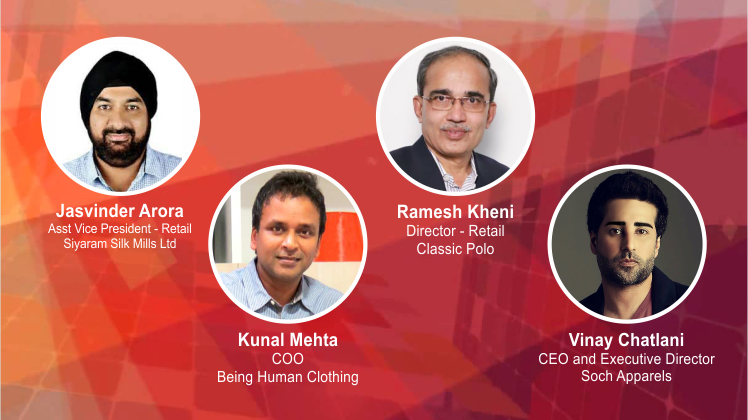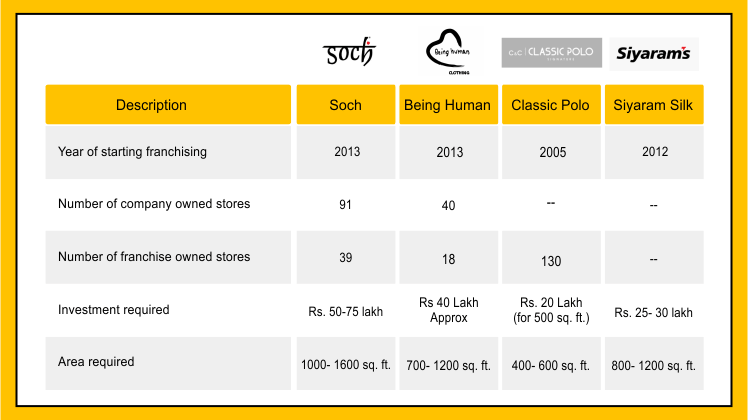Poised to become the third largest consumer market after US and China, the consumer spending in India is expected to grow from US $ 1.5 trillion at present to nearly US $ 6 trillion by 2030. Not just this, the number of ultra high net worth individuals in India is also expected to double to 330,400 with more than US $ 300 million worth of assets by 2022. Even as these stats are from the pre-Covid times, the growth prospect will remain the same and this has ascertained the business owners of growth in the overall retail market, going forward. Franchising is one strategy that brand owners and even potential business owners are exploring in order to be a part of this growing consumer market and India has become a vast pool of opportunities for franchisors courtesy the recent surge in entrepreneurial instincts of its people. In fact, franchising has witnessed a growth of around 30-35 per cent over the last four-five years and the overall turnover is estimated at around Rs.938 billion.
Even numbers are supporting the fact that franchising in India has got and is getting more traction than ever before. Industry estimates suggest that 90 percent of Indian start-ups fail within 5 years due to lack of mentorship and structure whereas the success rate in franchising is about 85 percent. And what better category to get into franchising than fashion, the segment being one of the fastest growing in the country.
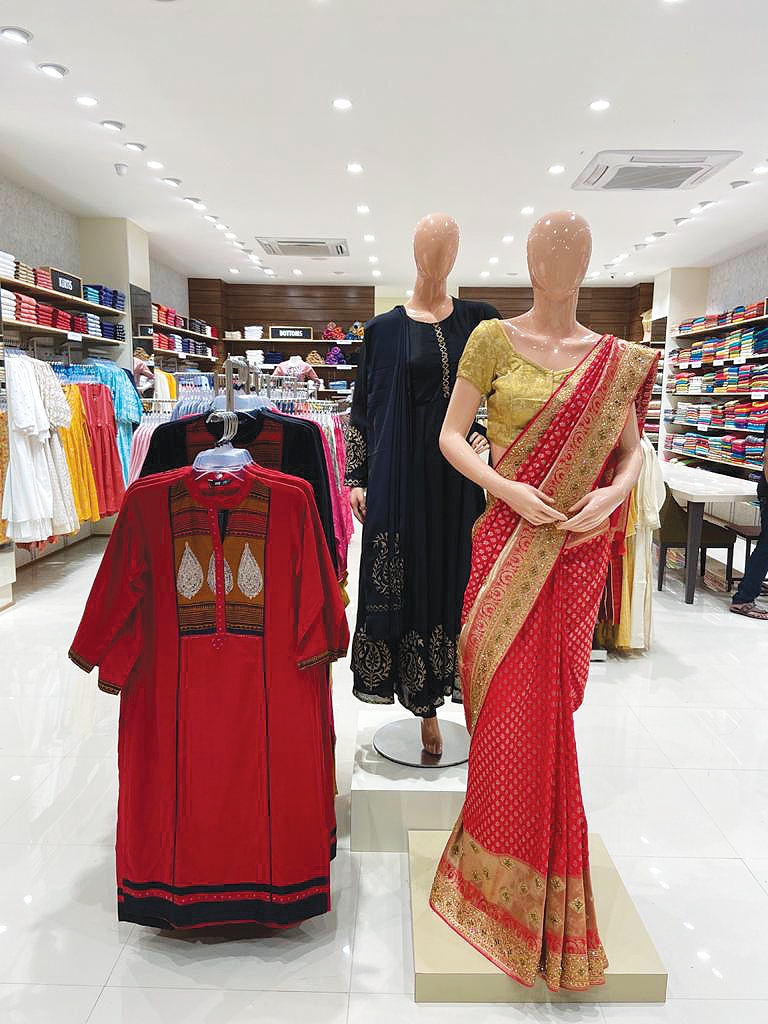
“Clothing franchises can be a source of immense profit if they are placed well. Another factor for their success is marketing. Both of these are taken care of if you choose a good brand. Requirements for a clothing franchise may vary according to the brand. Being a capital light model, it is a smart way to expand quickly. With the franchise route, we aim to be even more personalised in our approach. The franchisees bring in a level of local understanding, ease of operations and customer experience that makes the brand all the more relatable and admired. Benefits of this model also include advice on merchandising to suit the area, already established connection in the city where their networks often work to draw in consumers much quicker,” asserts Vinay Chatlani, CEO and Executive Director, Soch Apparels.
What makes franchising a lucrative business opportunity is that the franchisor assists in organising, training, merchandising, marketing and managing in return for a monetary consideration. For franchisor too, it’s a win-win game since the brand gets to easily expand its business through this route.
Kunal Mehta, COO, Being Human Clothing, agrees, “From the franchisor’s point of view, franchising is needed for scaling the business and increasing the brand’s footprint across vast geographies, in a small span of time without making huge capital investments and without having to take the stress of managing and incurring the cost of operations. Being Human is one of the most aspirational brands and hence this model allows us to seek inroads into Tier-3 and Tier-4 regions. One important benefit that this route offers to both the franchisor and franchisee is business risk mitigation. The franchisor’s business risk of venturing into unchartered territories is limited through the knowledge of the local franchisee, while the franchisee’s business risk of failure to create an accepted and successful business is limited through the use of an established brand that brings in business from Day-1.”
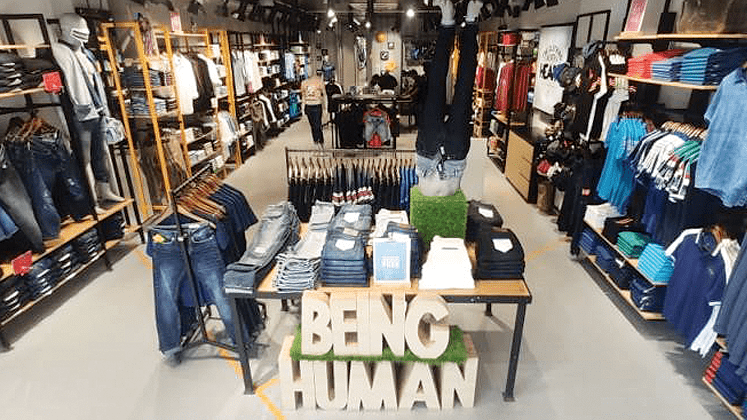
What’s working for brands?
Surviving in a fiercely competitive market is not an easy task and franchisors need to create a business model that turns out to be a win-win situation for them and the franchisees too. Business models such as Franchisee-Owned Company-Operated (FOCO) and Franchisee-Owned Franchisee Operated (FOFO) are created to suit the specific requirements of the brand and the respective franchisees. In FOCO model, the franchisee owns the brand’s store but it is managed by company itself. Whereas in FOFO model, the company grants the right to franchisee to further exercise control and manage the brand’s outlet as per the guidelines given by the franchisor.
However, most brands prefer going the FOFO way, especially in the fashion segment. Ramesh Kheni, Director – Retail, Classic Polo, maintains, “We have a 100 per cent franchise model and so all our expansion strategy is through franchising only and this route benefits us, in that, every store becomes an individual business unit, the franchisee has the local market knowledge and connections, and there is a business partner at each of the stores to take care of the operational challenges. Classic Polo only operates under FOFO business model and our main parameters for partnering with a franchisee are their involvement in the business and making it a success, great sales staff, good location, stock maintenance, visual merchandising in accordance to the brand language, and great customer experience.”
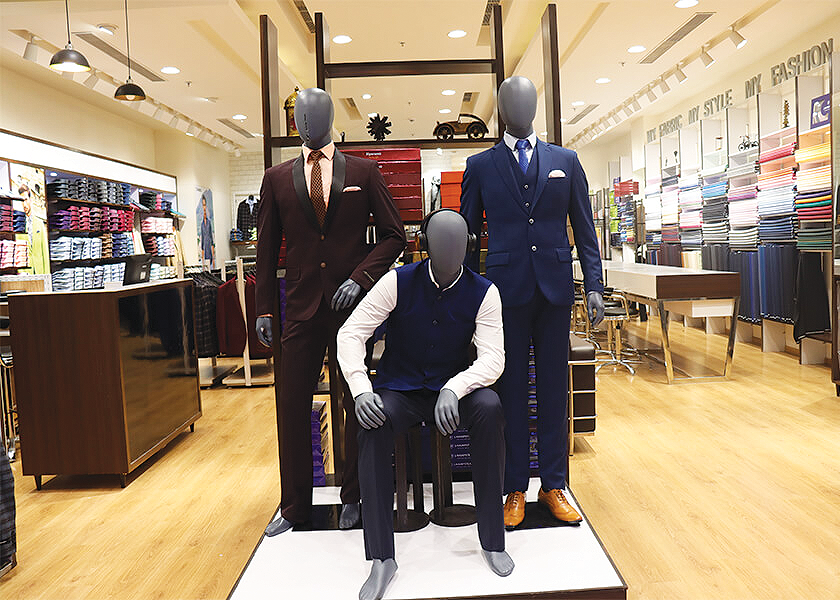
Franchising has its own advantages, like, expansion without investing additional capital which allows franchisor to grow using the resources of others; ease of supervision and management in a franchise owned store where the owner gets substituted for the manager and he/she is likely to have more motivation than a regular manager; profitability since the franchisor receives franchise fees and royalties on its products sold by the franchisee and as the franchise grows the store marketing strategies, multiple locations and huge customer base leads to an increase in the turnover and profits; minimised risk since all the responsibility for the investment in the franchise operation are borne by the franchisee. Indian franchising industry has seen a four-fold growth since 2013 and is thriving at a rate of 30-35 per cent year-on-year basis. In fact, India is already the second-largest franchise market in the world after the US.
While the pandemic has created a chaos in the overall market and most business owners are sceptical about opening a physical retail store right now, it has come as a surprise that the Covid situation has led more and more people today flocking websites to pick up franchises from reputed global brands instead of starting up their own stores.
Vinay Chatlani backs this up as he says, “At Soch, franchise run businesses have been thriving and thus giving us hopes for further expansion. It is partly because of the relationship that we share and partly because of the increase of demand in Tier-2 and Tier-3 regions. Customers who have experienced the brand in bigger cites now crave for it at their own cities. Talking about the pandemic situation, it has indeed been troubled waters for all retailers over the course of the last year. We have been extremely lucky to retain relationships with our franchisees that are more akin to a partnership vs simply a transactional model. Post the first wave, we actually saw franchisee and smaller town stores gain traction much quicker, and in many cases we saw higher numbers than that of a normal year. We are hoping for the same in the coming months. Furthermore, I think the next chapter of growth story for retail brands will have immense contribution from franchise stores and in that, FOFO model will work best. Right now, franchise stores recently opened in cities like Bijapur, Bellary and Hospet have been doing well and some higher performing stores would include Hubli, Meenakshi Mall in Bengaluru, Vizag and Mall De Goa.” Similarly, Being Human opened 8 new franchise stores during the pandemic and few of its most successfully running franchise outlets are in Bilaspur, Nashik, Guwahati and Jabalpur.
A strong franchisor- franchisee partnership
Franchising, per say, is a form of marketing and distribution which demands a strong relationship between the franchisor and the franchisee. One of the most robust and lucrative business model in the world, franchising gives ordinary people an opportunity to get into business without taking the actual risks of starting a business. What’s interesting is that there has been a tremendous rise in the number of international franchises in the country with Government easing its policies and rules for the entry of foreign brands in India.
Sharing details on how Being Human supports its franchisees, Kunal Mehta avers, “Being Human is a brand with the most amazing USP – Celebrity, Charity and Fashion. This makes us one of the most sought-after brands. We see to it that the ROI is within 2.5 -3 years and that our margins give the franchisee that comfort. Apart from the goodwill attached to the brand, we also provide technical know-how and retail specific orientation to the franchise partners which ensures our franchise partners’ success. We also train the staff at all our franchise stores. We believe in the power of the specially-abled and hence we have one such staff in all of our stores. In terms of replenishment and fulfilment, there is no difference between company owned and franchise stores. Retail planning team reviews the sales of each store, decide on replenishment and fulfilment and we always maintain base stock quantity at all stores. In terms of brand language, the look and feel and the VM at the store is one of the main elements which bring the customers back to the brand. Our brand has a very warm but rustic look, which is loved by all, as its original and based on sustainable store design. All the stores across India have same design concept. We have company vendors, in-house projects team, VM team, IT and marketing team which help the franchise to get the same experience at his store.”
Even as the pandemic lowered the motivation of the overall retail industry, fashion brands continued to expand through franchise route and the expansion was witnessed more in Tier-2 and beyond areas in comparison to metros. The secret to this and even to the success of the franchise stores has been regular communication and support and a strong relationship between the two parties.
Jasvinder Arora, Asst Vice President – Retail, Siyaram Silk Mills Ltd, maintains, “Since we have the concept of apparels, fabric and exclusive tailoring showroom, there is a huge opportunity as there are not many players in this segment. With large customer base and strong brand recognition, there is a huge potential for franchisees to achieve faster return on investment and rapid growth. The pandemic was a very challenging phase for all, however we converted these challenges into opportunities by continuously engaging with our franchisees digitally. We organised lots of learning and development programs for our franchisees and tailors to upgrade them. In order to help stores operationally, we organised virtual booking conference and introduced B2B app for stock replenishment. We also helped our franchisees in adopting technologies to increase their sales digitally by reaching out to the customers thus minimising loss of sale. We even launched many innovative products like antivirus fabrics, apparels and face masks to cater to the consumers in the pandemic situation. Going forward, we are planning to open stores in all metros, Tier-1 and Tier-2 cities and to reach 500 stores in the next 5 years, through franchise route.”
Similarly, Soch’s Vinay Chatlani too considers ‘supporting each other’ as the key to success in franchise business model. “The two main categories of franchise partners for us are the ones that own multiple franchisee stores in their operating space, and people who have the resources to invest in stores and choose to operate them themselves. We are honestly not biased to any of the two. We help our franchise partners with design and quality standards, training the staff (from SOPs to customer experience to visual merchandising norms), marketing, etc. In addition, we have our area or regional managers who visit and communicate with these stores. Our internal and external audits are also done for our franchise stores, and feedback from this is often priceless. In terms of offers and discounts, we believe in the one brand one thought philosophy and run centralised offers only. For now, Soch gets revenue share of 75 per cent from company owned outlets and 25 per cent from franchise owned stores, which might increase over the next two years courtesy the growing number of franchise outlets,” he adds.
The way ahead
The overall franchising segment contributes to around 2 percent to India’s GDP and this is forecasted to contribute 5 percent to India’s Gross National Income by 2025. This proves that the business model has already proved to be a success and is growing continuously, even during the pandemic. . Ramesh Kheni asserts, “Classic Polo has plans to add a minimum of 50 franchise stores this year and take the number to 100 across India the next year. After the first lockdown, we were lucky to open most of our store on the first stage of Unlock itself. Also, our mi-premium position, affordable pricing and a vast product range offering T-shirts, underwear, loungewear, etc., helped us gain traction faster.” While the pandemic negatively impacted the consumer sentiments, brands continued to support their franchise partners by engaging and helping them with better margins, rental negotiations and operational strength.
It’s true that not every business can set up a franchise but if it fits the criteria, one should explore it for its low cost and highly effective way to grow and expand. Being Human is planning to open 100 more franchisee stores by 2025, Soch has already launched 7 stores till date this financial year (4 company owned and 3 franchise owned) and is planning to add 10 more, Classic Polo will open 50 franchise stores this year and Siyaram is targeting to reach 500 stores in next 5 years.


